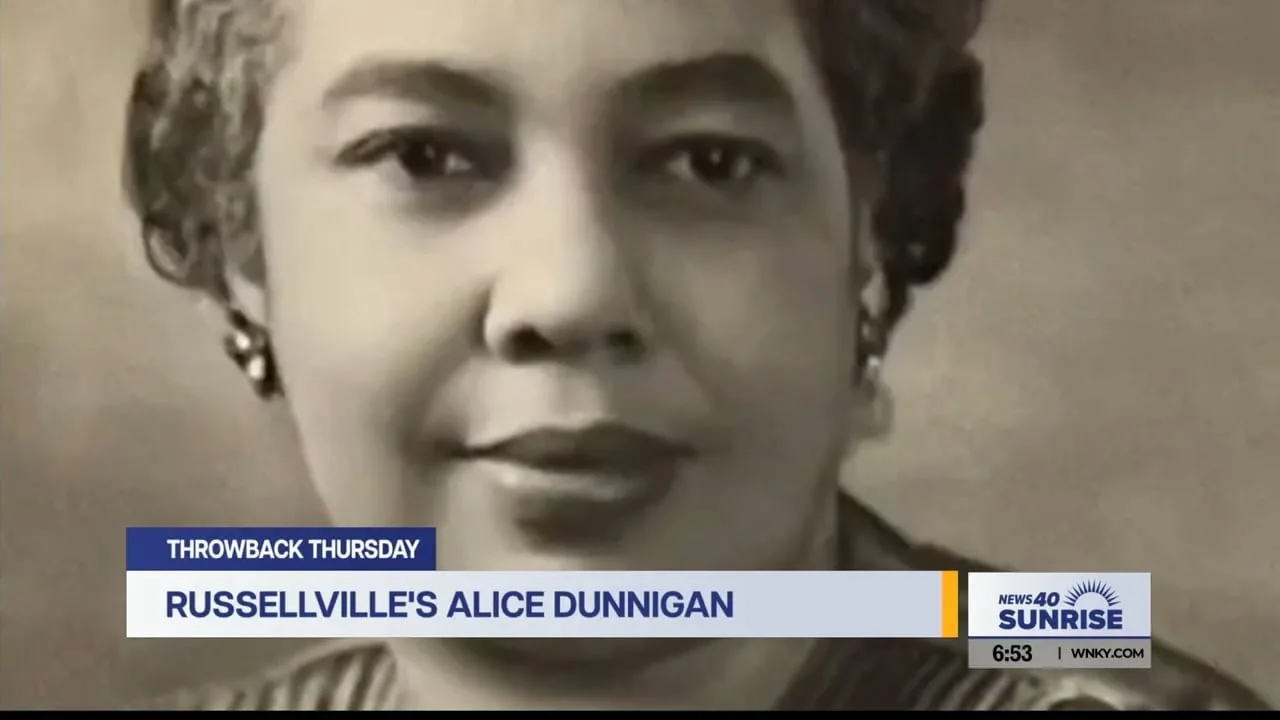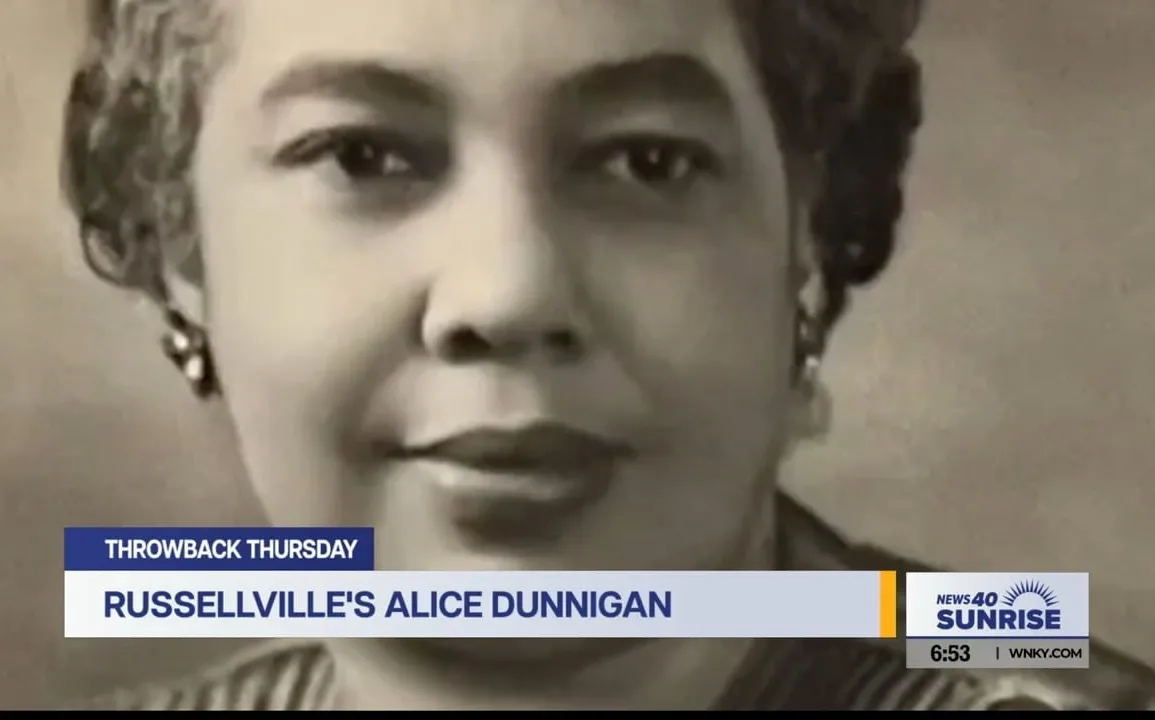
February is Black History Month. We’re sharing stories of southern Kentucky’s black
history all month long. First up is the story of a powerful African American
newswoman, who changed the media landscape for women and minorities alike.
Born in Russellville in Logan County in 1906, Alice Dunnigan was a journalist and
civil rights activist.
Alice Dunnigan’s ancestry is of African American, Native American, and Caucasian
decent. Her grandparents were slaves, her father was a sharecropper, and her
mother worked in laundry. Growing up during the Jim Crowe era, Alice’s education
came from the all-black schools. From a very young age, she showed enthusiasm for
learning and writing, beginning to work as a reporter for the Owensboro Enterprise
newspaper at just 13-years-old.
After graduating from Knob City High School and earning a teaching certificate from
Kentucky State University, she taught a Kentucky history class in the Todd County
school system for almost 20 years, until the start of World War II. She noticed there
was a lack of education about accomplishments by black Kentuckians in the
curriculum, so she added her own addenda to the text and began teaching students
about their own history too.
She moved to Washington D.C. in 1942 to answer a call for more government jobs to
aid the war effort. In 1946, she took a job corresponding for the Chicago Defender, a
large African American newspaper. She applied for credentials to cover the White
House, Congress, and all things politics. She broke the glass ceiling, becoming the
first African American female White House correspondent and first female Chief of
the Associate Negro Press.
Working with many presidents and campaigns, Alice was a game changer for African
Americans and females in the media and politics. John F. Kennedy named her to the
Committee on Equal Employment Opportunity and editorial assistant to the
President’s Council of Youth Opportunity.
A statue of Alice Dunnigan was dedicated in 2018 at the Newseum and has traveled
the country. Its current home is at the Alice Dunnigan Memorial Park in Russellville,
right next to the SEEK Museum in the Russellville historic district.


